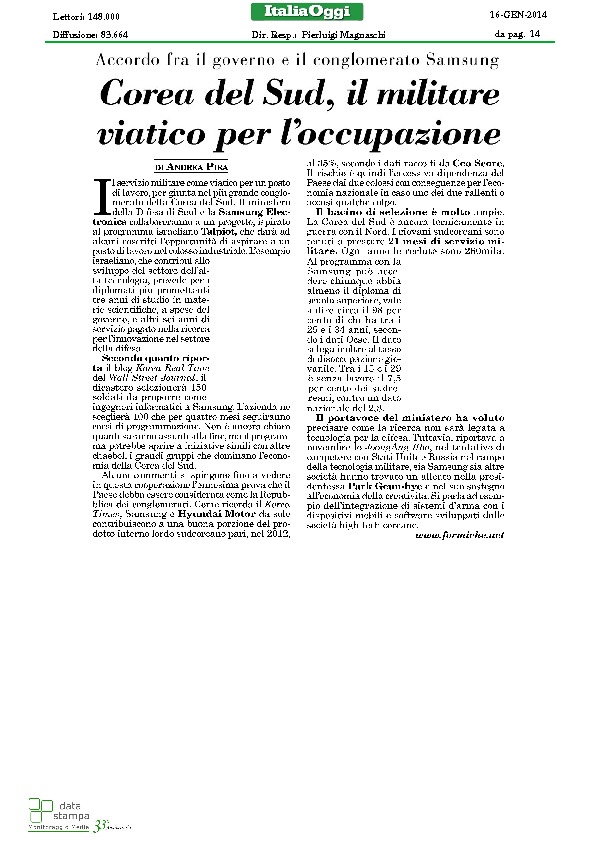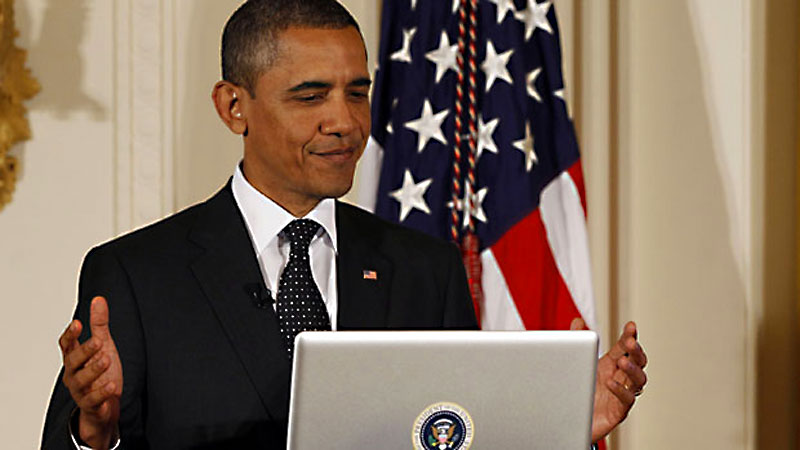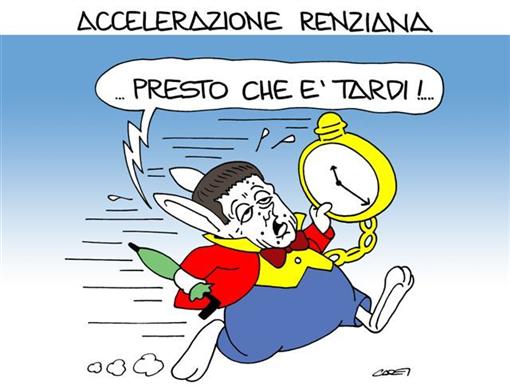Archivi
Perché le Borse snobbano la Fed
US retail sales dicembre più forti del maltempo hanno permesso ieri a Wall Street di riprendersi dall'attacco d'ansia che l'aveva colta improvvisamente lunedi. Certo, le revisioni al mese di novembre ridimensionano un po' la sorpresa positiva, ma in ogni caso i consumi US sembrano essere entrati nel 2014 con un buon momentum. Al sentiment generale ha contribuito anche un buon…
"I fuochi spenti" inaugurano la stagione lirica di Palermo
Il 18 gennaio, la stagione lirica del Teatro Massimo di Palermo viene inaugurata con un’opera poco nota in Italia: Feursnot di Richard Strauss. E’ il secondo lavoro per il teatro in musica del compositore. Il primo, un dramma medioevale post-wagneriano Guntram (presentato nel 2005 in prima italiana a Catania) era stato un insuccesso e Strauss (di cui ricorrono i 150…
La fame salverà i giovani italiani dai loro coetanei cinesi. Post da Abu Dhabi airport
Un incontro di lavoro al quale ho partecipato per definire un accordo di collaborazione per un progetto che si realizzerà quest’anno in Gran Bretagna, vedeva seduti al tavolo il presidente di una azienda cinese con i suoi quattro giovani collaboratori e dall’altra parte alcuni esponenti di un importante gruppo emiratino. L’atteggiamento assunto dai giovani dirigenti cinesi mi ha offerto lo…
Perché Apple, Yahoo e Netflix sono tristi
La rassegna stampa è presa da Good Morning Italia e pubblicata con licenza Creative Commons. Per ricevere Good Morning Italia ogni mattina, direttamente sulla propria email, è possibile abbonarsi gratuitamente cliccando qui. MEDIA Internet Pubblicata la lettera della Commissione Europea ad Agcom sul regolamento copyright online. Ue critica sui tempi per la rimozione dei contenuti, smentito il presidente Agcom (IPKat). Internet bis Net neutrality, spavento…
Obama si barcamena fra Nsa e droni
La rassegna stampa è presa da Good Morning Italia e pubblicata con licenza Creative Commons. Per ricevere Good Morning Italia ogni mattina, direttamente sulla propria email, è possibile abbonarsi gratuitamente cliccando qui. AMERICA I droni rimangono alla Cia Il compromesso sul budget votato anche alla Camera contiene un dispositivo – segreto – che blocca il passaggio del controllo dei droni dalla Cia al Pentagono,…
Chiamparino torna in politica e si specchia nei giornali
La rassegna stampa è presa da Good Morning Italia e pubblicata con licenza Creative Commons. Per ricevere Good Morning Italia ogni mattina, direttamente sulla propria email, è possibile abbonarsi gratuitamente cliccando qui. Piemonte, il ritorno di Chiamparino Depositata la sentenza del Tar che motiva l’annullamento delle elezioni regionali del 2010 (Stampa). Chiamparino si scalda, si dimette dalla Compagnia di San Paolo e oggi concede…
Che cosa fa l'ubiquo Renzi. La rassegna stampa politica
La rassegna stampa è presa da Good Morning Italia e pubblicata con licenza Creative Commons. Per ricevere Good Morning Italia ogni mattina, direttamente sulla propria email, è possibile abbonarsi gratuitamente cliccando qui. L’INCONTRO DELLO SCANDALO In vista del voto sulla nuova legge elttorale, dopo avere visto nella giornata di ieri Vendola e Alfano, Matteo Renzi incontrerà anche Silvio Berlusconi, domani o dopodomani, probabilmente nella…
Chi parla di ripresa vaneggia un po'. La rassegna stampa economica
La rassegna stampa è presa da Good Morning Italia e pubblicata con licenza Creative Commons. Per ricevere Good Morning Italia ogni mattina, direttamente sulla propria email, è possibile abbonarsi gratuitamente cliccando qui. NON E’ FINITA La crescente minaccia di deflazione minaccia di far deragliare la ripresa economica globale, ha detto ieri Christine Lagarde, direttore generale del Fondo monetario internazionale: “Il mondo deve ancora mettersi…

















